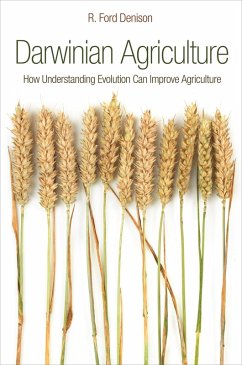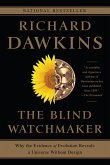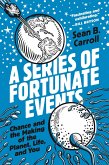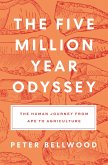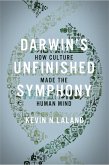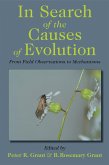Harnessing evolution for more sustainable agriculture
As human populations grow and resources are depleted, agriculture will need to use land, water, and other resources more efficiently and without sacrificing long-term sustainability. Darwinian Agriculture presents an entirely new approach to these challenges, one that draws on the principles of evolution and natural selection.
R. Ford Denison shows how both biotechnology and traditional plant breeding can use Darwinian insights to identify promising routes for crop genetic improvement and avoid costly dead ends. Denison explains why plant traits that have been genetically optimized by individual selection-such as photosynthesis and drought tolerance-are bad candidates for genetic improvement. Traits like plant height and leaf angle, which determine the collective performance of plant communities, offer more room for improvement. Agriculturalists can also benefit from more sophisticated comparisons among natural communities and from the study of wild species in the landscapes where they evolved.
Darwinian Agriculture reveals why it is sometimes better to slow or even reverse evolutionary trends when they are inconsistent with our present goals, and how we can glean new ideas from natural selection's marvelous innovations in wild species.
As human populations grow and resources are depleted, agriculture will need to use land, water, and other resources more efficiently and without sacrificing long-term sustainability. Darwinian Agriculture presents an entirely new approach to these challenges, one that draws on the principles of evolution and natural selection.
R. Ford Denison shows how both biotechnology and traditional plant breeding can use Darwinian insights to identify promising routes for crop genetic improvement and avoid costly dead ends. Denison explains why plant traits that have been genetically optimized by individual selection-such as photosynthesis and drought tolerance-are bad candidates for genetic improvement. Traits like plant height and leaf angle, which determine the collective performance of plant communities, offer more room for improvement. Agriculturalists can also benefit from more sophisticated comparisons among natural communities and from the study of wild species in the landscapes where they evolved.
Darwinian Agriculture reveals why it is sometimes better to slow or even reverse evolutionary trends when they are inconsistent with our present goals, and how we can glean new ideas from natural selection's marvelous innovations in wild species.

